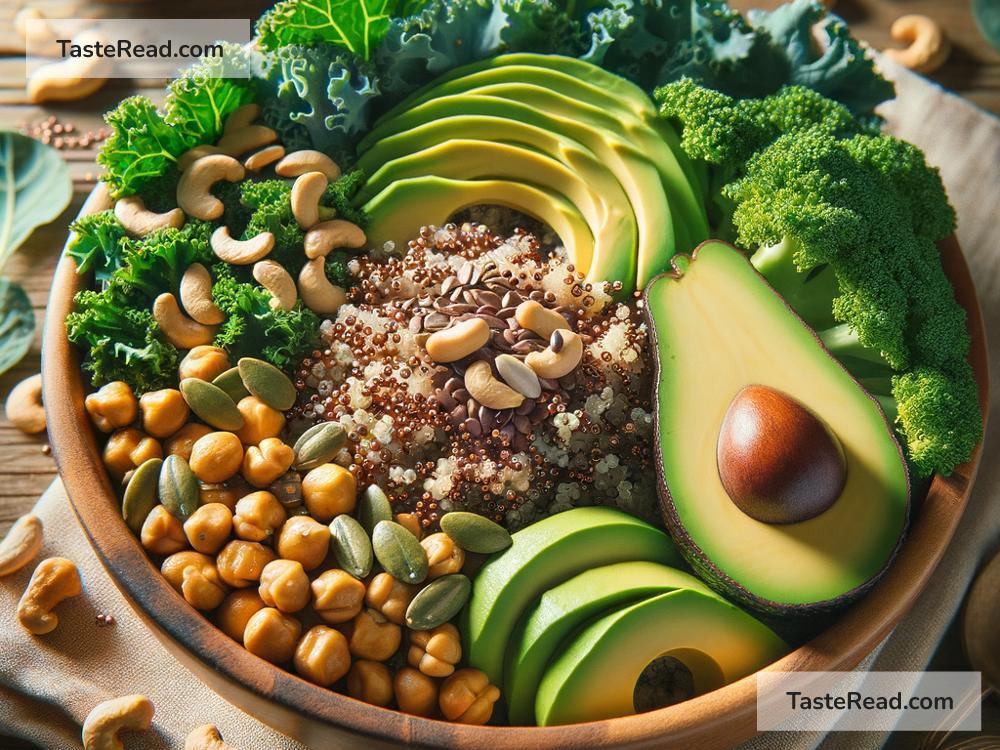The Importance of Copper in Nutrition
When we talk about nutrition, most people think of vitamins, protein, or minerals like calcium and iron. But there’s one mineral that often gets overlooked, even though it plays an essential role in keeping us healthy—copper. Copper might not be as famous as other nutrients, but it’s just as important for the body to function properly. In this article, we’ll explore what copper does for our health, where to find it in food, and why we should make sure to get enough of it.
What Is Copper?
Copper is a trace mineral, meaning that we need only a small amount of it in our diet. Even though we need it in tiny amounts, its role in the body is significant. Copper is involved in many processes that keep us alive and healthy. Without enough copper, our bodies would struggle to perform everyday tasks, like producing energy, maintaining strong immune systems, and keeping our hearts and brains working properly.
So, what exactly does copper do?
Why Is Copper Important for Health?
Copper supports many processes in the body. Here are some key ways copper helps us stay healthy:
-
Energy Production
Copper is needed to produce energy in our cells. It helps enzymes (special proteins that speed up chemical reactions) break down nutrients from food and turn them into energy. Without copper, this process slows down, and we might feel tired or weak. -
Healthy Blood and Iron Absorption
Copper plays a crucial role in forming red blood cells, which transport oxygen throughout the body. It also helps the body absorb iron, another important mineral for blood health. Without enough copper, iron absorption can suffer, leading to low iron levels and conditions like anemia. -
Strong Bones and Connective Tissue
Copper helps build and maintain connective tissues, such as cartilage, tendons, and ligaments. It’s also important for healthy bones. A lack of copper could lead to weaker bones and problems with joints and skin elasticity. -
Brain and Nervous System Health
Copper supports the brain and nervous system by helping neurotransmitters (chemical messengers) work properly. These neurotransmitters allow the brain to communicate with the rest of the body. Copper also protects nerve cells from damage. -
Immune System Function
Copper helps the immune system fight off infections and keep us healthy. If we don’t get enough copper, our bodies might find it harder to fight viruses and bacteria. -
Antioxidant Properties
Copper is involved in reducing oxidative stress in the body. Oxidative stress happens when harmful molecules called free radicals build up, causing damage to cells. Copper supports enzymes like superoxide dismutase (SOD), which neutralize free radicals and protect the body from damage.
How Much Copper Do We Need?
The recommended daily intake (RDI) of copper depends on age and gender. For most adults, the RDI is around 900 micrograms per day. Pregnant and breastfeeding women may need slightly more. It’s important to strike a balance because too much copper can be harmful, just as too little can cause problems.
Copper deficiency is rare, but it can happen in people who have conditions like celiac disease or who don’t absorb nutrients well. Symptoms of copper deficiency can include fatigue, weak bones, frequent infections, and difficulty concentrating.
On the other hand, getting too much copper—usually from supplements or contaminated water—can lead to copper toxicity. Symptoms include nausea, vomiting, or liver damage in severe cases. The best way to avoid this is to get copper naturally through food rather than supplements, unless advised by a doctor.
Foods Rich in Copper
The good news is that many everyday foods contain copper. Here are some excellent sources of copper for your diet:
-
Shellfish – Oysters, crabs, and lobsters are super rich in copper. They’re one of the best options for boosting your copper intake.
-
Nuts and Seeds – Cashews, almonds, sunflower seeds, and peanuts are great plant-based sources of copper.
-
Chocolate – Dark chocolate (with a higher cocoa content) contains a good amount of copper. It’s a healthy treat in moderation!
-
Organ Meats – Liver, especially beef liver, is packed with copper.
-
Whole Grains – Foods like wheat, oats, and quinoa contain copper and are a nutritious addition to your diet.
-
Vegetables – Leafy greens (like spinach), mushrooms, sweet potatoes, and tomatoes all provide a decent amount of copper.
-
Legumes – Lentils, beans, and chickpeas are excellent sources.
-
Avocado – This creamy fruit is another surprising way to get a little extra copper in your meals.
-
Seaweed – Certain types of seaweed also contain copper.
How to Include Copper-Rich Foods in Your Diet
Adding copper-rich foods to your meals doesn’t have to be hard. You could sprinkle nuts or seeds on your salad, enjoy a hearty lentil soup for lunch, or snack on dark chocolate after dinner. If you eat meat, adding liver to your meals once in a while is an excellent way to boost copper levels. Small dietary changes can make a big difference.
Conclusion
Copper is a tiny but mighty mineral that plays a vital role in keeping our bodies healthy. It supports energy production, blood cell formation, brain function, immunity, and much more. Getting enough copper through a balanced diet is essential for overall well-being, but it’s important not to overdo it.
By eating a variety of copper-rich foods like nuts, shellfish, and leafy greens, you can ensure your body gets the copper it needs. Remember, nutrition isn’t just about the big-name vitamins and minerals—every nutrient matters, including copper! Take care of your health by giving this unsung hero of nutrition the attention it deserves.


